Parul Institute of Medical Sciences and Research
Bachelor's Program
Bachelor of Medicine & Bachelor of Surgery (MBBS)
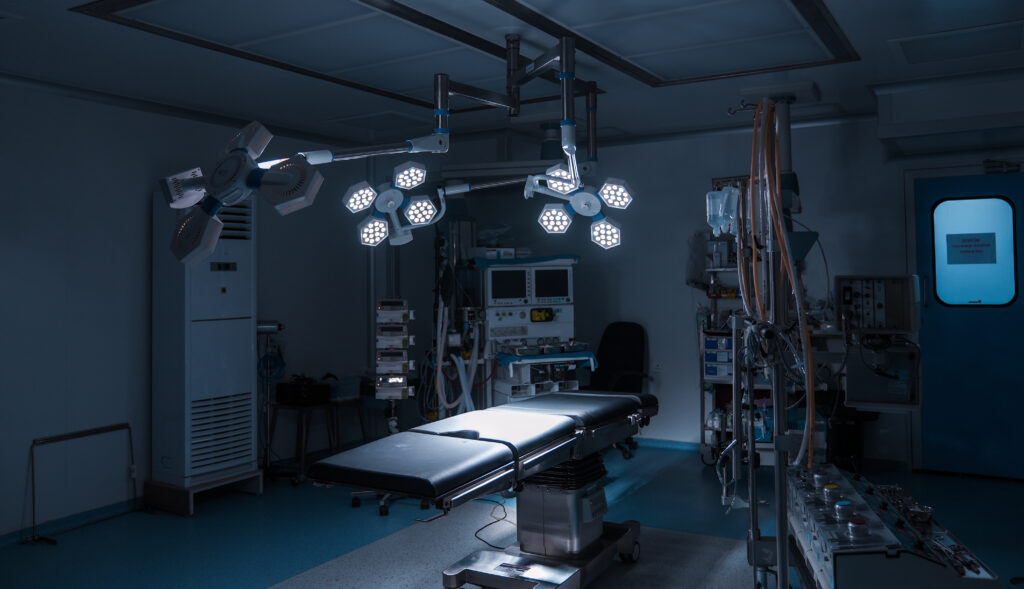
About Bachelor of Medicine & Bachelor of Surgery (MBBS)
Medicine is a universal program which maintains a position of great significance towards ensuring the welfare and healthcare of humanity. The Faculty of Medicine provides 5.5 year bachelor degree in medicine and surgery, which trains, develops and nurtures students into becoming effective medical practitioners with the ability to look after the health welfare of the society. The medical curriculum exposes students to specific specialisations in the areas of Nephrology, Cardiology, Gynaecology, Anaesthesiology, Organ Transplant, Endocrine, and General Surgery, etc. The program focuses in ensuring the development of the practical skills and hands on training of the students thus the faculty constantly engages students with the 650 multi speciality learning hospital, Parul Sevashram Hospital. The comprehensive curriculum provides students with an array of exposure to fundamental subjects such as anatomy, pharmacology, pathology as well as community health & medicine, paediatrics, and surgery. Parul University’s management program is led by a team of expert faculties and medical resources, who nurture the students and develop their medical competencies. The program engages students in social awareness and health camps designed to promote the health and community welfare of the society in preparation of their practise in the various medical career streams.
Take a Leap into the Medical Career
Related Downloads
Explore how our MBBS program would gradually progress
Department of Anatomy provides an overview of the human body’s structure, embryological development, organ functions, clinical correlations, and disease presentations, focusing on the anatomical basis.
Department of Physiology involves understanding the normal functioning of body organs and systems, their structure and organization, age-related physiological changes, and the physiological basis of diseases with its clinical context.
Department of Biochemistry explains the biochemical and molecular processes involved in health and disease, emphasizes nutrition’s role, explains the biochemical basis of clinical laboratory tests, and demonstrates clinical interpretation.
Department of Pathology focuses on understanding the diseases’ causes, evolution, and mechanisms, understanding organ morphology changes, and demonstrating correlation between disease history, structure, and functional changes with clinical manifestations, diagnosis, and therapy.
Department of Microbiology explains the role of microbial agents in health and disease, their immunological mechanisms, and the correlation between infectious diseases and microbial properties. It also deliberates infection control measures, laboratory diagnostic tests, and outbreak investigation.
Department of Pharmacology emphases the possess knowledge of essential drugs, pharmacologic basis, clinical condition selection and prescription, pharmacovigilance, essential medicine concepts, and industry-doctor relationships, and can counsel patients on drug use and delivery systems.
Department of Forensic Medicine And Toxicology provides an in-depth understanding of the medico-legal responsibilities of physicians, the rational approach to crime investigation, managing poisoning/negligence cases, the medico-legal framework of medical practice, medical ethics, and the concept of deceased donors.
Department of Community Medicine includes understanding health and disease concepts, demography, population dynamics, disease burden, health economics, hospital management principles, and interventions in National and State Health Programmes.
The course also emphasizes that the learner should have a comprehensive understanding of health determinants, recognize and manage common health problems, implement and monitor National Health Programmes, knowledge about organ and tissue donation, maternal and child wellness, and community health problems.
Department of Otorhinolaryngology (ENT) shows that the learner knows common ENT emergencies, diagnosing and managing them in primary care, performing simple procedures, and recognizing hearing impairments and referring them to appropriate rehabilitation programs.
Department of Ophthalmology ensures that the learner possesses knowledge of community eye problems, the ability to diagnose and manage these issues, and the ability to recognize visual impairment and blindness.
Department of General Medicine outlines and ensures that the learner attains the responsibilities of a healthcare professional, including understanding disease pathophysiology, conducting patient examinations, interpreting laboratory tests, initiating appropriate therapy, monitoring patients, providing guidance, handling common medical situations, and understanding patient safety concerns, while also performing routine medical operations independently.
Department of Pediatrics possesses the ability to assess and promote optimal growth, development, and nutrition in children and adolescents, provide emergency care, perform procedures, recognize special needs children, promote health, participate in national programs, and communicate effectively, all while adhering to the Integrated Management of Neonatal and Childhood Illnesses (IMNCI) Strategy.
Department of Dermatology outlines the skills required for diagnosing skin, hair, nail, and mucosa diseases, treating common skin diseases like leprosy, implementing a syndromic approach for sexually transmitted diseases, and recognizing emergencies.
Department of Psychiatry allows the learner to possesses knowledge of mental health, psychiatric disorders, substance abuse, suicide risk assessment, temperamental difficulties, personality disorders, mental disability assessment, and understanding of national and state programs addressing mental health and patient welfare. They can also recognize and manage common psychological and psychiatric disorders in primary care settings.
Department of General Surgery focuses on the essential skills required for a surgical professional, including understanding the diagnosis and management of common surgical problems, administering appropriate fluids and products, applying principles of asepsis, sterilization, and antibiotics, knowledge of common malignancies in India, performing diagnostic and surgical procedures, providing life support, organ retrieval, informed consent, and commitment to patient safety.
Department of Obstetrics And Gynecology highlights the role of undergraduate medical professionals in providing peri-conceptional counseling, identifying high-risk pregnancies, conducting normal deliveries, prescribing drugs, diagnosing labor complications, performing early neonatal resuscitation, providing postnatal care, counseling couples on contraception, and interpreting laboratory and radiological tests.
The course also, emphasizes the importance of applying medico-legal principles in medical procedures, including tubectomy, Medical Termination of Pregnancy (MTP), Pre-conception and Prenatal Diagnostic Techniques (PC PNDT Act), and gynecologic history, diagnosing and managing reproductive tract infections, and referring common genital cancers.
Department of Orthopedics (Including Trauma) emphasizes that the learner should possess the ability to identify and treat bone injuries, dislocations, and poly-trauma, understand trauma’s medico-legal aspects, manage bone and joint infections, diagnose bone diseases, perform simple orthopedic techniques, and recommend rehabilitation services.
Department of Anesthesiology focuses on the content that covers pre-operative evaluation, anesthesia modifications, perioperative physician roles, pain management, airway maintenance, cardiopulmonary procedures, resuscitation, and informed consent. It also covers managing acute and chronic pain, maintaining the airway, selecting cases, and executing cardio-pulmonary procedures. The course ensures that the learner learns and discusses resuscitation in emergency and intensive care units.
Department of Radiodiagnosis course focuses on the learner being able to understand radiological indications, radiation ill effects, protective measures, and identifying abnormalities in clinical practice.
Experience hands-on learning with our internship program
The medical undergraduates will need to complete the internship of one year at a designated hospital. During this internship, they will be posted in multiple departments for a fixed time duration. They must complete the training of the time duration mandated by NMC and maintain a logbook.
At PIMSR, the interns will get an excellent opportunity to complete their medical internship in the state-of-the-art NABH accredited 750-plus bedded multi-specialty hospital affiliated with Parul Institute of Medical Science and Research Medical College.
During the time frame, they should be able to learn skills which include, administering injections, managing diabetes, inserting IV cannulas, Ryles tubes, and Foley catheters, suturing, managing medical conditions, managing dermatological conditions, and performing normal deliveries. It emphasizes the importance of confidence in performing these tasks after passing the MBBS.
The interns also need to learn to see the tympanic membrane, use bull’s eye mirror, remove foreign bodies, attend CMEs, prepare vital charts, cut Plaster of Paris casts, write death certificates, examine diagnoses, and identify patients in toxicology. Learn to write death certificates, examine surgical diseases, and identify patients. They should be able to record, interpret the normal and abnormal ECG and X-ray of the patient.
What can you become after pursuing MBBS?
After completing an MBBS (Bachelor of Medicine, Bachelor of Surgery), there are several pathways you can take depending on your interests and career goals. Here are some options
Provide comprehensive care for patients of all ages, often working in community settings
Work in hospitals, providing care in various departments such as emergency medicine, internal medicine, or intensive care.
After additional training, you can become a specialist in areas like cardiology, endocrinology, or nephrology.
Perform surgeries in various fields, such as general surgery, orthopedic surgery, or neurosurgery.
Specialize in the care of infants, children, and adolescents.
Focus on women's reproductive health, pregnancy, and childbirth.
Diagnose and treat mental health disorders.
Use imaging techniques like X-rays, MRIs, and CT scans to diagnose conditions.
Administer anesthesia during surgeries and manage patient care in the perioperative setting.
AFFILIATION
Constituent College of Parul University
Approved By: NMC
Undergraduate Medical Education Board
No. U. 1 4021 1812023-UGMEB Dated: 01st August, 2023
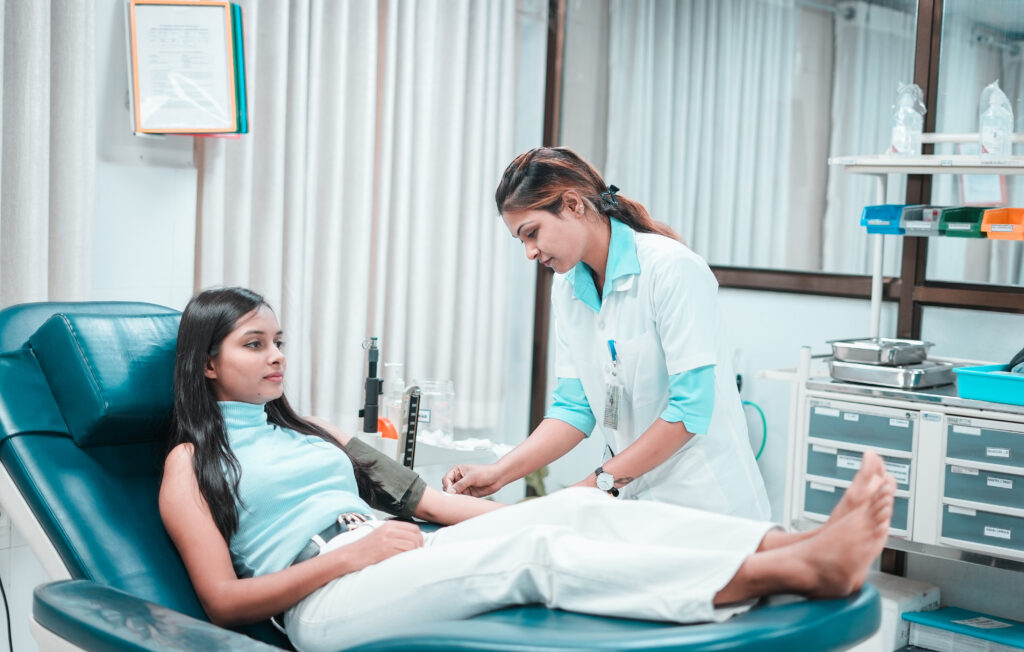
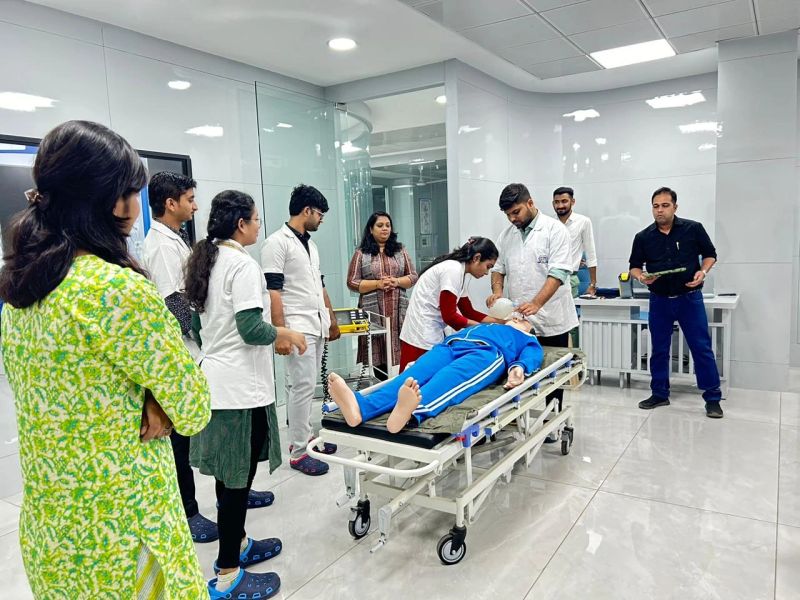
AFFILIATION
Constituent College of Parul University
Approved By: MCI
ELIGIBILITY CRITERIA
For admission to MBBS, the candidate shall have cleared 12th from science stream with PCB subjects with below requirements: General: PCB- Avg 50% and Overall 50% + NEET 50 PR Reserved: PCB- Avg 40% and Overall 40% + NEET 40 PR Shall have cleared 12th from a recognized board. MBBS Admission Requirements: Only Candidates who are- i. Domicile of Gujarat ii. 10th and 12th from Gujarat
MODE OF ADMISSION
For admissions please visit our portal to register/login yourself and proceed ahead with your admission application.
Medical Resources
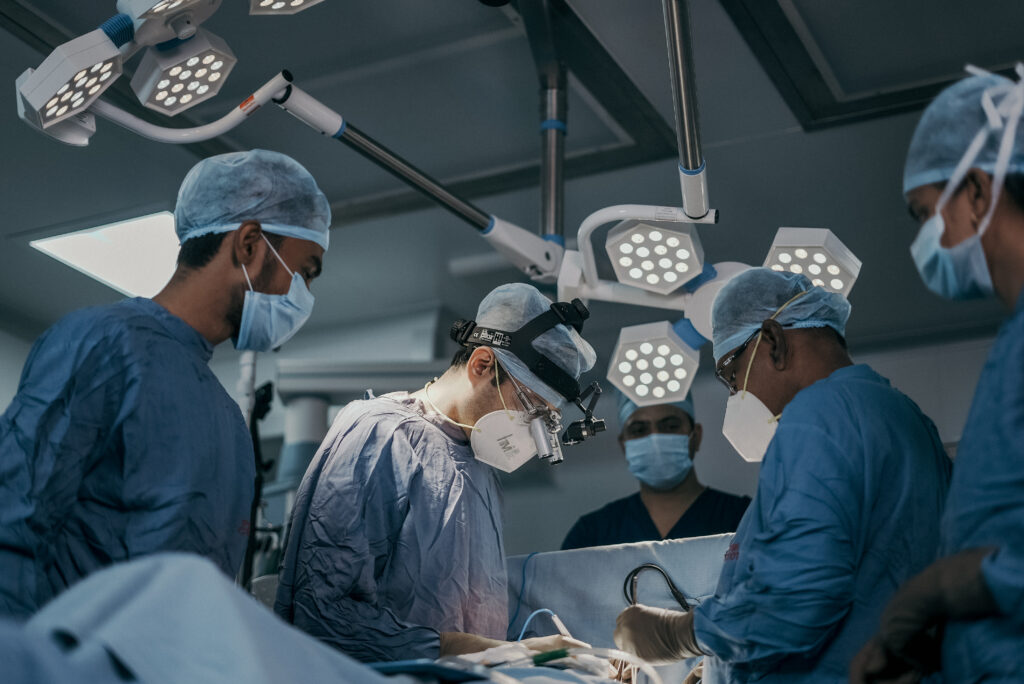
As a way of promoting research innovation and novel ideas in the field of medicine, Parul University, has a designated research and development laboratory.
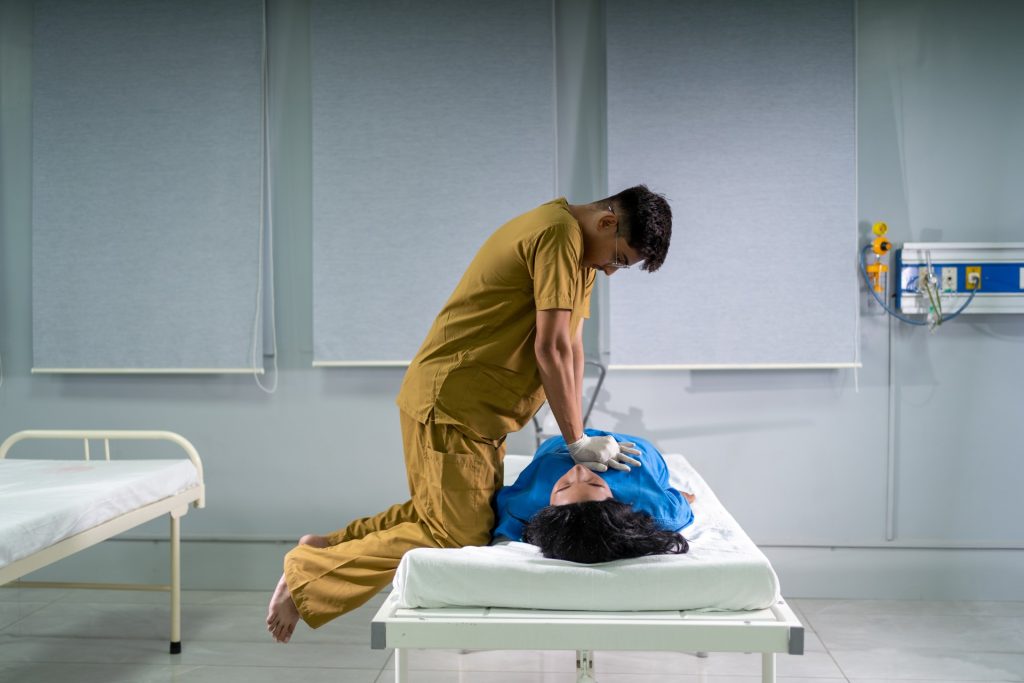
As a way of developing a medical research culture within the, the Faculty of Medicine provides state of the art facilities for research and experimentation
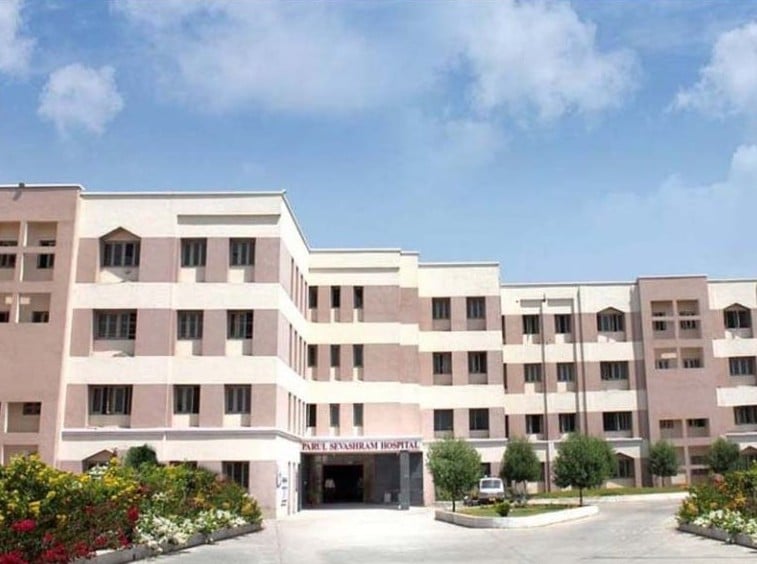
As a way of promoting practical hands-on training experience for the students, the faculty of medicine is equipped with a 650 bedded Multispeciality Hospital,

